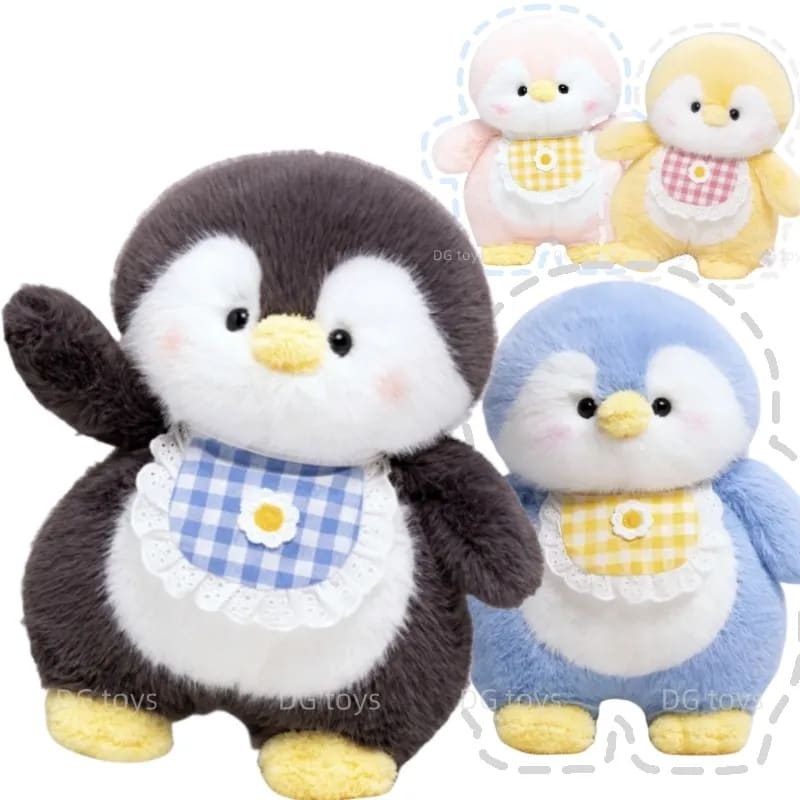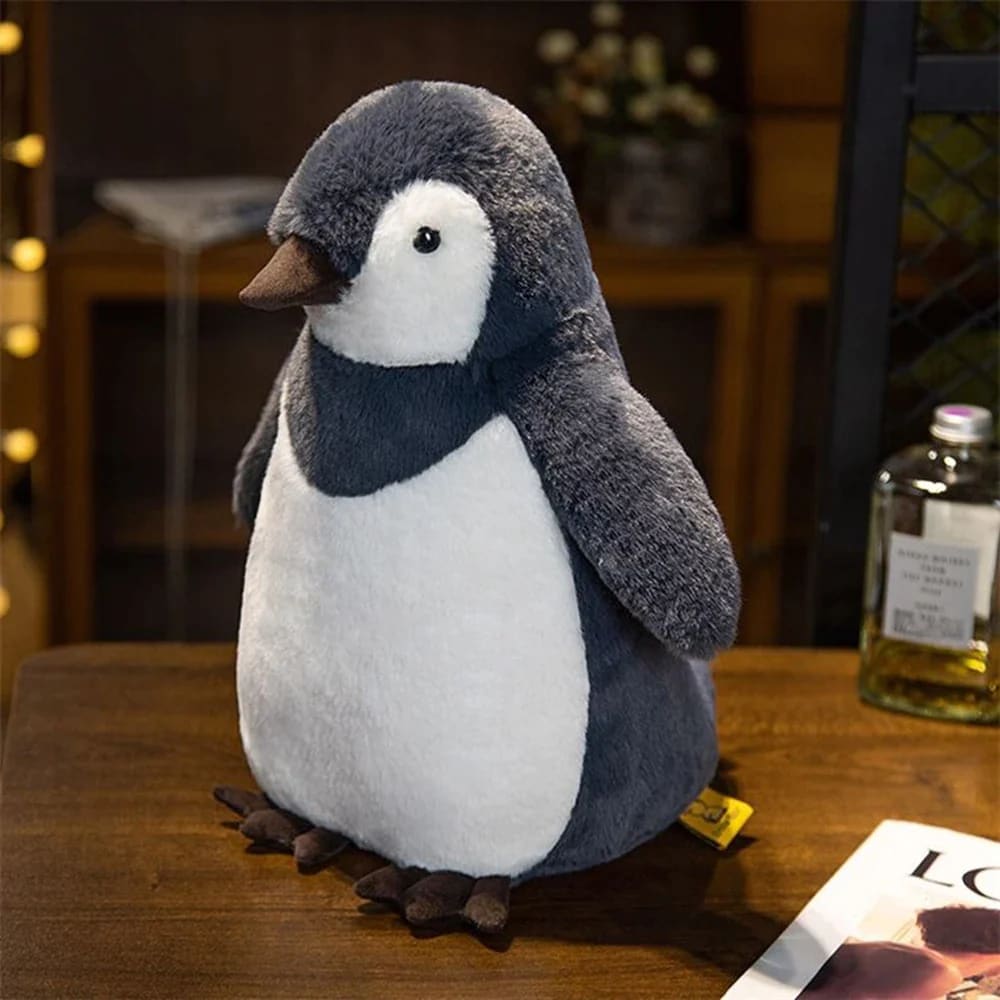How often do penguins poop? Discover the Pooping Habits of Penguins
Penguin Poop: Size, Color, and Frequency
When it comes to penguins, pooping is not only a necessary bodily function, but it also provides valuable information about these fascinating creatures. A typical penguin poop is small and usually consists of a dark, oily substance called guano. Penguins have a unique adaptation that enables them to excrete waste without soiling their feathers, which is crucial for their survival in cold environments. On average, penguins poop every 20 minutes, but the frequency can vary depending on various factors such as their diet and size.
Penguins' poop frequency serves multiple purposes. Firstly, it helps them maintain a clean and hygienic nesting site, preventing the spread of bacteria and diseases. Secondly, it also plays a significant role in nutrient recycling in the ecosystem. The high concentration of nitrogen-rich guano acts as a fertilizer, promoting the growth of phytoplankton and other primary producers in the ocean. This, in turn, supports the entire food chain, ensuring the survival of numerous marine organisms.
The Role of Diet in Poop Frequency
One of the main factors influencing penguins' poop frequency is their diet. Different species of penguins have different feeding habits, which directly impact their gastrointestinal processes. For example, penguins that feed on high-energy foods such as fish and krill tend to have more frequent bowel movements. The abundance of food in their diet leads to faster digestion and, consequently, more frequent pooping. On the other hand, penguins that feed on lower-energy prey or have a more diverse diet may poop less frequently.
Additionally, during the breeding season, when penguins often fast for an extended period, their poop frequency decreases. This is because their bodies conserve energy and reduce metabolic processes, including digestion. As a result, penguins may excrete less waste during this time.
Intriguingly, studies have shown that penguins in captivity tend to poop more frequently than their wild counterparts. This is partly due to the controlled diet provided by zoos and aquariums, which often consists of fish rich in nutrients and easily digestible.
Body Size and Poop Frequency
Size matters when it comes to penguin poop frequency. Larger penguin species, such as Emperor Penguins, produce more waste compared to their smaller counterparts. This is because larger penguins consume more food, resulting in a higher volume of waste. The larger size of their digestive systems also contributes to more frequent bowel movements.
However, it's worth noting that all penguins, regardless of their size, have efficient digestive systems that quickly process food and eliminate waste. This adaptation enables them to optimize their energy intake and enhance their survivability in challenging environments.
Now that you know about the factors affecting the pooping habits of penguins, let's explore another aspect of their fascinating nature.
Penguin Poop: A Clue to Their Health and Behavior
Penguin poop serves as an essential window into their health and behavior. Scientists and researchers can gain valuable insights by studying the characteristics of penguin feces. One such characteristic is the presence of stomach oil. Penguins regurgitate this oil, which is produced by a gland near their tail, and then spread it over their feathers to maintain their waterproofing and insulation.
The color of the guano can also provide important information. For example, reddish or pinkish guano may be an indication of a penguin's diet consisting of krill rich in pigments. Similarly, greenish guano may suggest a diet that includes more fish. By analyzing the color of penguin poop, scientists can gain insights into their diet and feeding patterns.
Poop and Nesting Behavior
Penguin poop plays a crucial role in their nesting behavior. Penguins typically build nests made of pebbles and rocks on land or ice to protect their eggs from the cold ground. However, these nests can become contaminated with bacteria and parasites from the surrounding environment. To prevent this, penguins poop outside their nests, creating a clear boundary between their nesting area and the surrounding environment.
This behavior helps maintain a clean and healthy nesting environment for their eggs and offspring. The pungent smell of the guano also acts as a deterrent for potential predators, further protecting their nests.
The unique behavior of penguins regarding their poop demonstrates their remarkable adaptations and intelligence in ensuring the success of their breeding colonies.
Poop as a Social Signal
In addition to its functional purposes, penguins also use their poop as a social signal. When penguins return from their hunting trips in the ocean, they often mark their paths with a trail of guano. This serves as a visual cue for their chicks and partners, enabling them to locate the returning penguins amidst the vast colonies.
The visual and olfactory signals given off by the guano also help penguins identify their own nests in crowded colonies. This unique form of communication showcases the clever ways in which penguins have adapted to their social lives in dense communities.
Penguin Poop: Conservation and Environmental Implications
The significance of penguin poop extends beyond their individual biology and behavior. The high concentration of nutrients found in their guano plays a critical role in marine ecosystems. The nitrogen-rich waste serves as fertilizer for phytoplankton, microscopic plants that form the base of the marine food chain.
Phytoplankton blooms stimulated by penguin guano attract a wide variety of marine organisms, including zooplankton, fish, and even whales. This ripple effect throughout the food chain highlights the crucial role penguins play in maintaining the health and biodiversity of the oceans.
Penguin Poop and Climate Change
As the effects of climate change intensify, penguins face numerous challenges, including changes to their foraging patterns and the availability of their primary food sources. These changes can have indirect effects on penguin poop, ultimately impacting the marine ecosystems that rely on their nutrient-rich waste.
Understanding the relationship between penguins, their poop, and the environment is essential for implementing effective conservation strategies. By studying changes in penguin poop frequency, composition, and distribution, scientists can assess the health of penguin populations and the overall state of marine ecosystems.
Protecting penguins and their habitat not only ensures their survival but also safeguards the delicate balance of marine ecosystems worldwide.
Penguin Poop: A Reflection of Nature's Complexity
Now you know that penguins' poop goes beyond just being waste. It serves as a vital link in the intricate web of life, influencing their health, behavior, and the entire marine ecosystem. From fertilizing phytoplankton to communicating with their partners and offspring, penguins have evolved remarkable adaptations around their poop.
So, the next time you spot a penguin waddling across the ice or swimming in the ocean, remember the hidden significance of its seemingly ordinary bodily function.
Penguin poop - an unassuming yet extraordinary connection between these charming creatures and the vast oceanic world they inhabit.



























